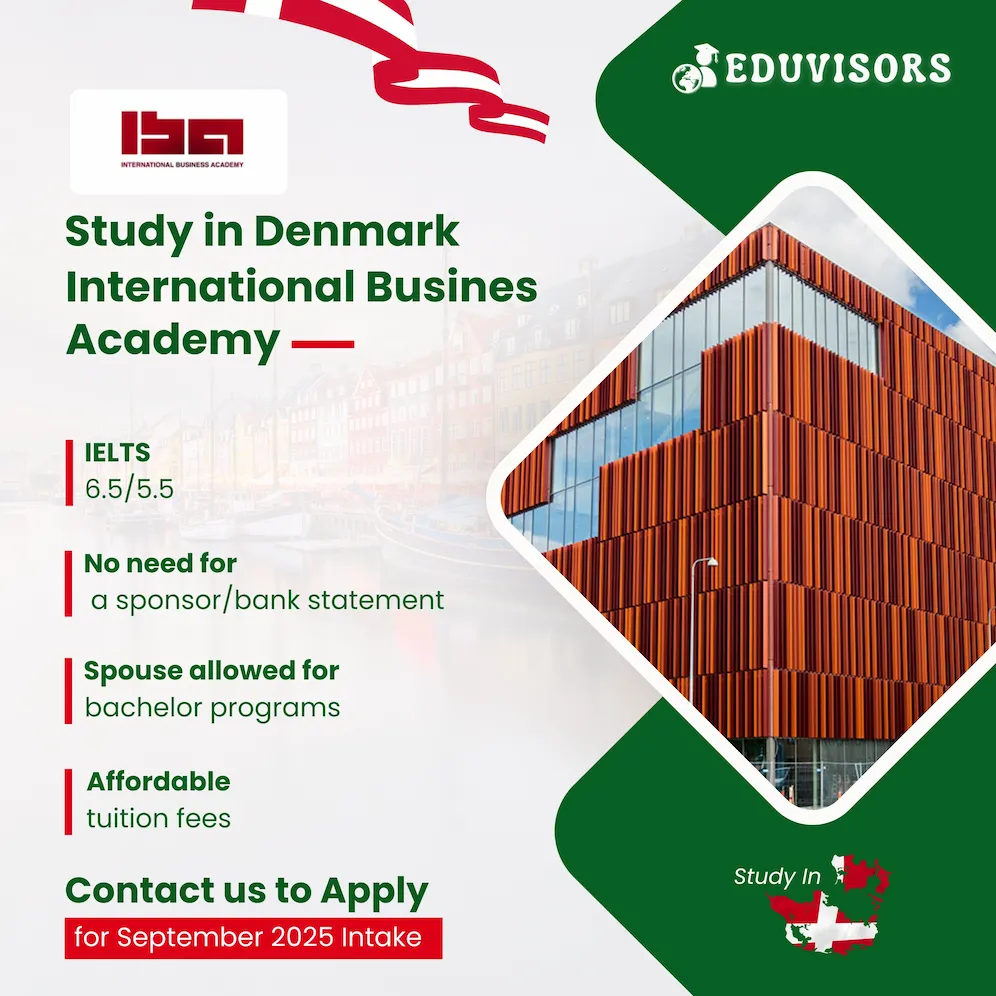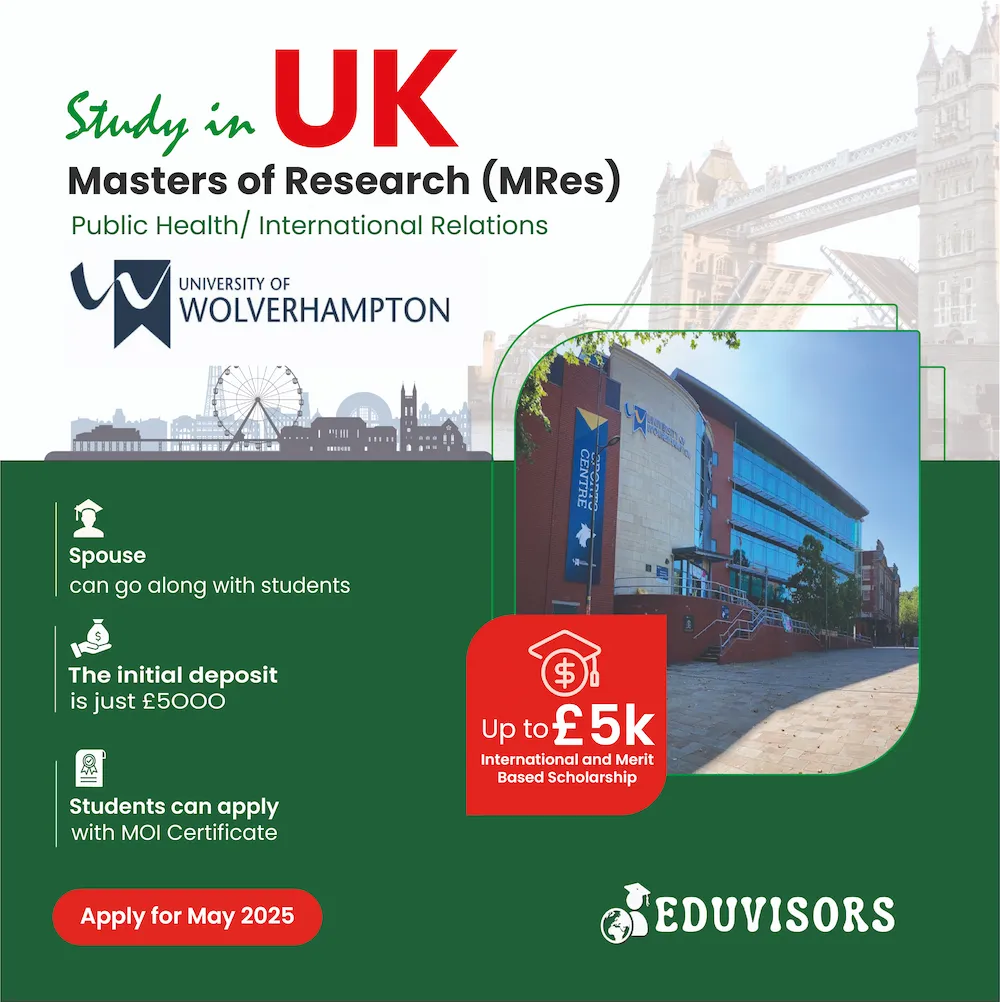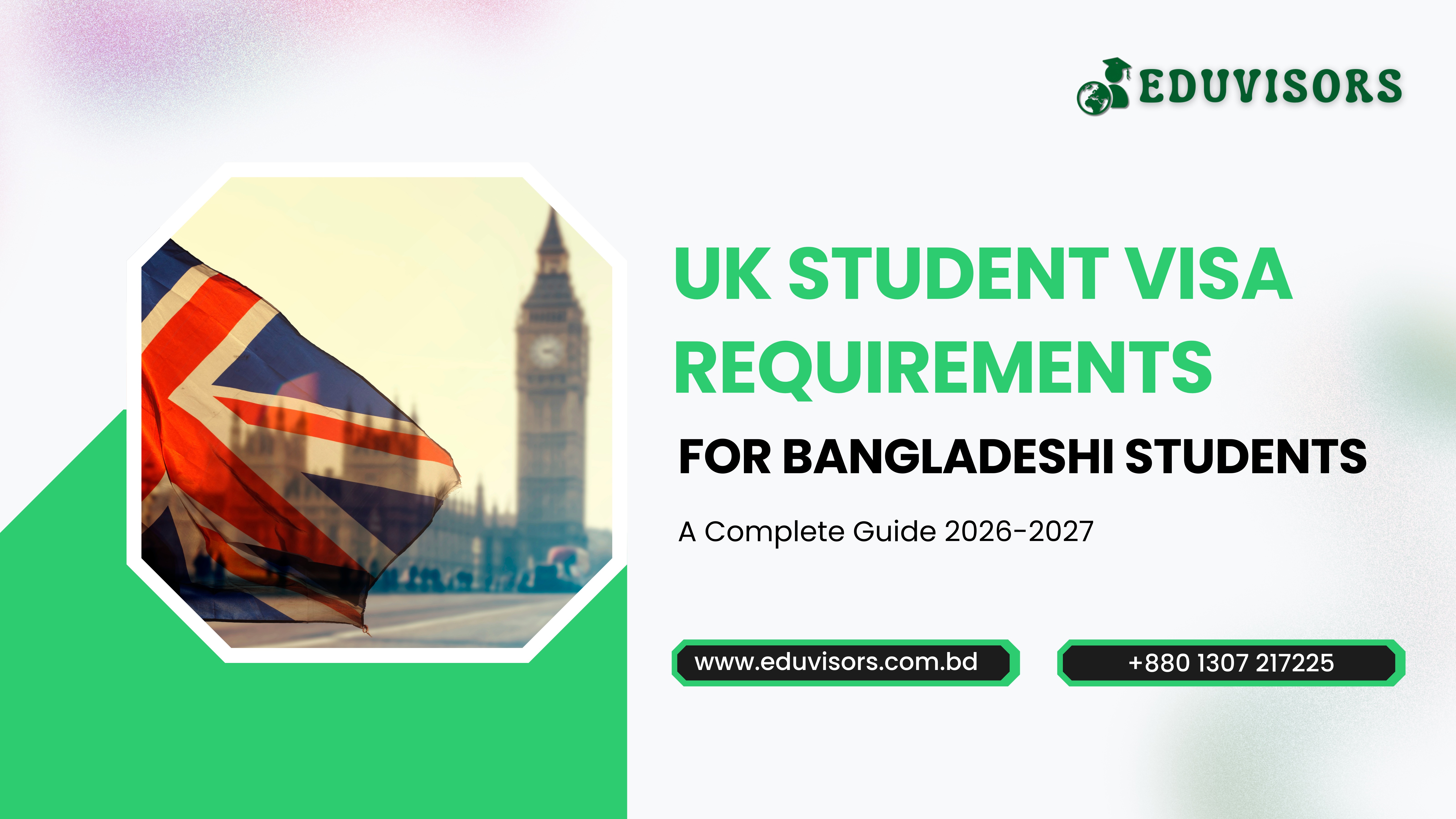Study abroad from Bangladesh without IELTS is now possible for many students who want to pursue higher education but prefer alternative English language options. Several countries and universities offer admission based on previous academic background, English-medium instruction certificates, or other approved language tests. In this guide, you will discover the best countries, popular universities, and practical pathways that allow Bangladeshi students to study abroad without taking the IELTS exam.
Students from Bangladesh can gain stronger English language proficiency, wider networks, and a global perspective that enhances both their personal and professional lives.
There are several opportunities to study or work abroad even without an IELTS score. Taking classes taught in English, applying for exemptions if previous schooling was done in the language, or passing substitute exams such as the PTE or TOEFL are some options.
Tests may not be necessary if one has work experience in English-speaking workplaces, and interviews can be used to evaluate language proficiency. Participating in English language programs overseas can enhance one’s skills and open up new avenues for career advancement.
For Bangladeshi students dreaming of international education, the prospect of studying abroad without IELTS opens up exciting opportunities. This comprehensive guide explores how to pursue undergraduate and graduate degrees in English-speaking countries and beyond, focusing on affordable education options, admission processes, and alternatives to traditional language proficiency tests.
Understanding IELTS and Alternatives
While IELTS is widely accepted as proof of English language proficiency, many universities now offer alternatives for international students. These options include:
- QA Free English Test
- Medium of Instruction (MOI) certificates
- Free Internal English Tests
- Alternative Qualifications (A-Levels or T-Levels)
- PTE Academic
- TOEFL
IELTS Requirements from Study Abroad From Bangladesh
Prestigious institutions across the world accept scores from the International English Language Testing System, or IELTS, as evidence of English language proficiency. Speaking, listening, reading, and writing skills are assessed for academic, professional, and immigration-related objectives.
Some students may choose not to take the test due to the cost, the difficulty of receiving a good score, and the time constraints. The exam may be difficult for non-native speakers, and the costs and time associated with studying and scheduling may make them feel more stressed, particularly if they have other obligations.
IELTS scores range from 0 to 9 for Speaking, Reading, Writing, and Listening. The average of these four section scores determines the overall band score, which is then rounded to the closest half band. Scores that end in.25 advance to the next half band, while scores that end in.75 advance to the next full band.
The representation of each band score for a student’s ability level is shown in the table below. It also contains a description that belongs to the student.
| Band score | Skill level | Description |
| Band 9 | Expert user | Fully operationally commands the language, using it in a suitable, accurate, and smooth manner while displaying an accurate understanding of the subject. |
| Band 8 | Very good user | Only occasionally makes improper use of language, but else shows complete operational expertise of it. May occasionally misinterpret certain things in strange contexts, but he is skilled at handling difficult, complex arguments. |
| Band 7 | Good user | Maintains operational mastery of the language despite occasional errors, improper usage, and occasionally misunderstanding contexts. In general, has a good command of complicated vocabulary as well as an understanding of elaborate logic. |
| Band 6 | Competent user | Despite occasional mistakes, improper usage, and misunderstandings, there is generally an effective understanding of the language. Particularly in familiar settings, there is a significant amount of proficiency in using and understanding rather complicated language. |
| Band 5 | Modest user | Although many mistakes are likely, there is a partial proficiency of the language that permits comprehension of the overall idea in most circumstances. One should be able to handle basic communication. |
| Band 4 | Limited user | Basic competency is limited to well-known situations and frequently has comprehension and expression problems. It is impossible to use complicated phrases. |
| Band 3 | Extremely limited user | In very familiar situations, only common meaning can be understood and expressed; communication breakdowns occur frequently. |
| Band 2 | Intermittent user | Understanding written and spoken English is really challenging. |
| Band 1 | Non-user | With the exception of a few select words, there is no capacity to utilize the language. |
| Band 0 | Did not attempt the test | There was no response to the queries. |
How to Study Abroad Without IELTS
Completing English language proficiency exams such as the TOEFL or IELTS is one of the many requirements to study at world-class colleges. Finding success on these tests can be costly and challenging for a lot of overseas students, especially those who are non-native speakers.

But some esteemed colleges in the UK and Europe accept proof of English ability from other tests or grades from schools. Studying abroad without taking the IELTS requires students to carefully consider what each university requires for admission. Students without an IELTS or TOEFL score are also admitted to numerous universities in Australia, the UK, Canada, Germany, and Norway.
There are several scopes of studying abroad without IELTS such as the QA free English Test, Medium of Instruction (MOI), Free Internal English Test, and Alternative Qualifications (A-Level).
QA free English Test:
QA Higher Education provides more than 100 foundation, undergraduate, and postgraduate degree programs in in-demand skills fields, working in close collaboration with UK institutions. QA also provides a free English proficiency exam to help applicants prove their language proficiency.
This exam can be taken in place of the TOEFL, PTE, or IELTS and consists of four modules: speaking, reading, writing, and listening. Students can utilize this test to apply to Ulster University, Northumbria University, Solent University, and the University of South Wales, as these four universities are partners with QA.
Medium of Instruction (MOI):
Students usually study in English to graduate from undergraduate school. The term Medium of Instruction (MOI) refers to documentation proving that a student’s coursework was completed in English. It confirms that the instruction was given in English and is frequently given by a professor or other academic professional.
Free Internal English Test:
Some universities, such as the University of Gloucestershire and De Montfort University, provide a free internal English exam in case an IELTS result isn’t available. As a backup for applicants who might not score at the necessary levels on exams like the PTE, TOEFL, or IELTS, this exam assists in demonstrating English ability for admissions.
Alternative Qualifications (A-Level):
T Levels offer a wide range of areas and are a competitive substitute for A-Levels. Every T Level carries the same UCAS point value and is comparable to three A-Levels. These two-year programs are 80% educational and 20% industry-based.
Top Countries and Universities for Study Abroad Without IELTS
United Kingdom
The UK offers numerous opportunities for Bangladeshi students to study without IELTS. Some popular universities include:
- Ulster University
- Solent University
- Northumbria University
- DeMontFort University
- University for the Creative Arts
- University of South Wales
- University of Gloucestershire
These institutions may accept alternative proof of English proficiency or offer their own language tests.
Australia
Australian universities are known for their academic excellence and multicultural environment. Some options for studying without IELTS include:
- University of Queensland
- University of Adelaide
- University of New South Wales
- University of Melbourne
- University of Tasmania
- University of Sydney
Canada
Canadian universities offer a range of programs for international students. Some institutions that may consider alternatives to IELTS:
- McGill University
- Cambrian College
- Okanagan College
- Concordia University
- Brock University
- University of Winnipeg
- Carleton University
Germany
Germany is an attractive destination for its affordable education and strong economy. Universities to consider:
- University of Freiburg
- University of Bayreuth
- University of Siegen
- University of Kassel
- University of Bonn
- Esslingen University of Applied Sciences
Hungary
Hungarian universities offer competitive programs in English:
- University of Debrecen
- Budapest University of Technology and Economics
- Corvinus University of Budapest
List of Documents Required to Study in the UK without IELTS
| 1. | More than 75% in the CBSE or ISCE classes 10 and 12 |
| 2. | A current passport |
| 3. | CAS letter |
| 4. | Letters of Experience (if any) |
| 5. | ATAS Certification, if relevant |
| 6. | Financial documentation, such as a bank balance certificate backed up by the last three months’ worth of bank statements, a bank loan approval letter, and, if relevant, certificates for fixed deposits |
| 7. | A certificate of health from a clinic approved by the UKVI that the clinic provides |
| 8. | Birth Certificate |
| 9. | Sponsorship Documents |
Application Process
To be admitted to the UK without having to take the IELTS exam, the following substitute conditions need to be fulfilled:
From an English-speaking nation
Students who have finished their high school education in an English-speaking nation may occasionally be relieved from taking extra exams to prove their English language skills.
High school education in English-medium schools
International applicants to UK institutions frequently do not need to submit an IELTS score if they attended English-medium schools for a predetermined amount of years. It’s crucial to confirm eligibility directly with the university as each one may have different requirements.
Additional Tests of English Language Proficiency
IELTS is the most often used test for students in the UK, although they can also take other exams to measure their English proficiency, such as TOEFL, PTE, and Cambridge English Exams. Before applying, make sure to know the minimum score requirements and whether these examinations are accepted by the university.
Pre-sessional English Language Courses
Pre-sessional courses are available at many UK universities for international students wishing to improve their English skills. These classes assist in fulfilling degree programs’ language requirements. After completing a pre-sessional course, students may not need to take the IELTS exam in order to enroll in their degree program in the UK.
Basic Initiatives
International students can prepare for their degree studies with foundation programs offered by some UK universities. Academic courses in the program’s topic of study are combined with English language instruction.
Employment History
Colleges may omit the IELTS requirement if a candidate has significant work experience in an English-speaking nation and can demonstrate their language competency through relevant work experience. Students with experience or those who have worked in comparable conditions for a long time would find this choice beneficial.
Academic transcripts, letters of recommendation, results of standardized tests, copies of passports, financial records, and a CV are required when applying to study abroad programs. Connecting with friends and family and adjusting to the new surroundings are crucial since homesickness is a regular occurrence. Knowing the academic culture in advance might be helpful because it can be difficult to adjust to new academic systems and teaching approaches.
Examine funding options early and think about shorter programs or less well-liked areas to save money. Financial aid and scholarships can help cover the costs of studying abroad. Gaining some vocabulary and utilizing translation applications might help reduce language hurdles.
You can learn a language faster by practicing and conversing with natives. Researching regional traditions, consulting with counselors, and maintaining an open mind are ways to navigate cultural differences. As you adjust to new payment methods and currencies, you should research conversion rates, ask locals for guidance, and make plans for handling cash and transaction fees.
Conclusion
In addition to providing excellent growth and international perspectives, studying abroad may not require the IELTS. Exams like QA free English Test, free internal English Test, MOI certificates, and Alternative qualifications (A-Level)can be used as substitutes.
Most obstacles can be avoided by looking into financial aid and scholarships, preparing for exciting new academic and cultural experiences, and avoiding unnecessary stress. Accepting these changes can extend perspectives and advance one’s career.
Taking into account the various alternatives for studying overseas without taking the IELTS exam, and getting started right now may be helpful. In addition to looking into financial aid and scholarships, investigating substitutes such as MOI certificates and other English proficiency exams may help.
Accepting new intellectual and cultural challenges can support advanced professional and personal development. By enrolling at an international school, students can expand their knowledge and experience new things.
Studying abroad without IELTS is an achievable goal for Bangladeshi students with strong academic backgrounds and English language skills. By exploring alternative language proficiency tests, considering a range of countries and universities, and carefully planning finances, you can embark on an exciting educational journey that will broaden your horizons and enhance your career prospects.
Remember to thoroughly research your chosen institutions, understand their specific admission requirements, and prepare all necessary documents well in advance. With determination and proper planning, you can turn your dream of international education into a reality.

















